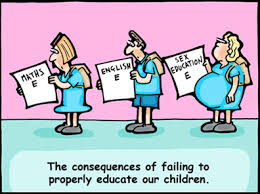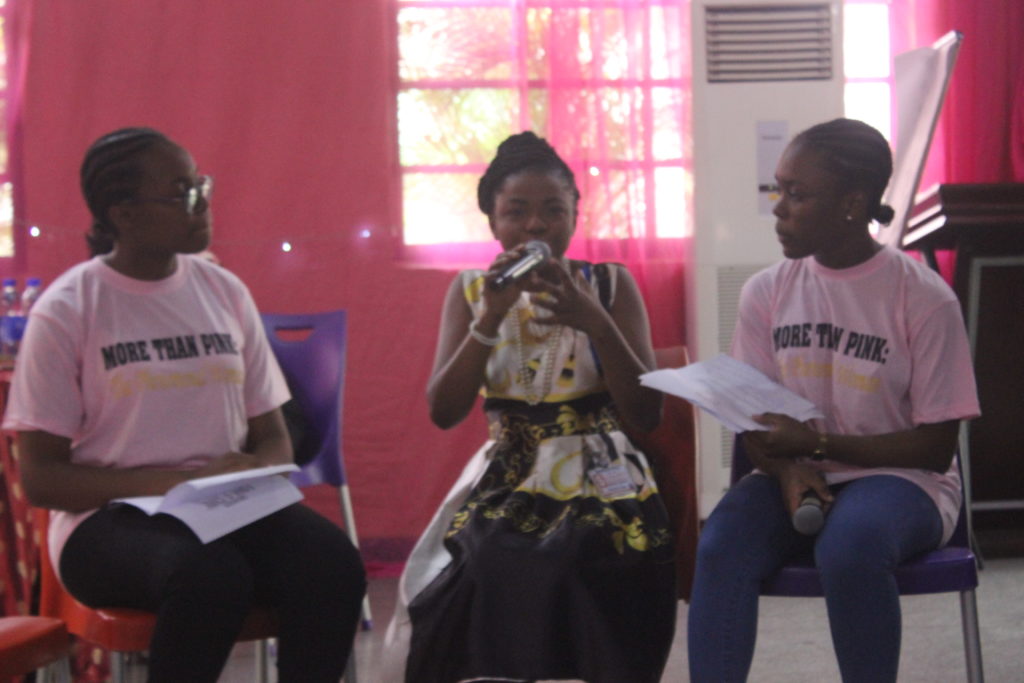Sex education is one heated conversation with conflicting opinions.
Parents have a different view on sexual education. Some believe that sex education should not be taught in school, while others believe that only certain aspects of sex education should be taught. Some think it should be part of the school curriculum. If it should be taught, when is the appropriate age?
However, what should be the ideal in a world where there are different opinions about sex and sexuality. Should the topic of sex be taught in Nigerian schools?
According to debate.org, 93% of people believe that sex education should be taught in schools. However, the audience of this poll is not primarily Nigerians.
In this article, we will discuss the issues and challenges of sex education in Nigeria. We will also try to answer the question “Should sex education be taught in Nigerian schools?”
Nevertheless, it is very important to know what sex education means.
What Is Sex Education?
Sex education is defined as the teaching and learning of topics relating to sex and sexuality, exploring values and beliefs about these topics and gaining the skills that are needed to develop relationships and manage one’s own sexual health.
Another definition, by The European Expert Group, explains sex education “as an education that aims to develop and strengthen the ability of children and young people to make conscious, satisfying, healthy and respectful choices regarding relationships, sexuality and emotional and physical health.”
Topics taught in sex education could include the following:
- Sexual intercourse
- Reproduction
- Puberty
- Dating and romance
- Child planning
- Birth Control
- Sexual orientation
- Sexually transmitted infection(STI’s)
- Gender identity
- Abstinence
- How to use the condom
- Sexuality throughout life
- Gender roles diversity
- Sexuality in the media
- LGBT
Sex education may be taught in community settings, schools or online. However, there are disputes on whether or not sex education should be taught in schools in Nigeria. Some have argued that educating students on topics relating to sex safety and the use of condoms may make them become rebellious and act out. While others believe that children should be taught sex education in schools, based on their level of understanding.

Let’s consider the answers of some experts, influencers, researchers, pop culture and media below.
Answers from 4 experts
- Accurate, balanced sex education – including information about contraception and condoms – is a basic human right of youth.
Such education helps young people to reduce their risk of potentially negative outcomes, such as unwanted pregnancies and sexually transmitted infections (STIs). Sex education can also help improve the quality of their relationships and assist in developing decision-making skills that will prove invaluable to life.
By youth, we mean students who have started secondary school. Some of the question youths ask about sex include:
How often do I take the pill? Can I have sex and get pregnant if I take an e-pill? Is it safe to have sex during my period? What about the pull-out method? For example, on the issue of the use of contraceptive, a lack of knowledge could lead to having an unwanted pregnancy, STIs, or both.
According to research conducted with children from 14–24 years, 29.5% of students have watched romantic movies, 38.6% students have read romantic materials and 54.1% of them have listened to romantic radio programs.
These students are already learning about sex and romance through other means. Bear in mind that what they see in the media is not necessarily accurate.
Since this is primarily for the youth, it brings in the next question of age. At what age should sex education be taught? Should Sex Education be taught in Preschool? And if it should be taught, what terminologies should be used?
- Sex education can be taught in pre-school but age-appropriate answers must be given; questions should be answered calmly, positively, honestly and accurately.
According to Sunday Style, a top writer for Daily Telegraph, here are some thoughts he gathered from Parents in Australia.
“Children are sexual beings; it’s a strong part of their identity, and it is linked to their values and respect. Rigid views on gender are associated with abuse and domestic violence,” says Early Childhood Australia spokeswoman Clare McHugh.
“Surely toddler sex ed — if that is really a thing — should start in the home and not at daycare. Sex education is a difficult issue and best handled in a sensitive manner with families,” says a preschool director.
“Be age-appropriate, but answer questions calmly, positively, honestly and accurately. Start with basic information about reproduction. Find out exactly what your child wants to know and answer the specific question — there’s no need to go into elaborate detail when it might not be necessary. Preschoolers must talk about the right names for boys’ and girls’ genitals, good touches/bad touches, and stop/go/tell if something happens. Sex education is not just about the ‘nuts and bolts’ of sex, sexual identity and gender,” says Thomas.
- Sex education should be part of the education curriculum. Sex education does not harm children and youths in any way.
In this TED Talk by Dr V. Chandra-Mouli from World Health Education, schools and parents must not shy away from discussing sexual education or else children will learn from people and medium who do not really care for their physiological, psychological and spiritual well-being.
He stated that sexuality education does not harm children and adolescence.
How should your child respond if he/she is touched in an inappropriate way? There is no corrupting influence of sexuality education neither does it lead to early or increased sexual activity.
- Instead of silencing sex education because of cultural belief, culture should be taken into context while teaching sex education
This is according to Jude Makoro, a Nigerian expert on sex education.
Sexuality is one of the most complex aspects of humanity.
Perhaps one of the major challenges that continue to confront sex educationists is how to proceed with the design of a curriculum or with the teaching of sex education in contexts where the facts they possess conflict with the values or cultural norms of the educational settings.
In his research, Jude demonstrated the reality and likelihood of this conflict.
Thereafter several possible models of dealing with conflict are explored and compared in order to analyse their strengths and weaknesses with the intention of finding a greatly improved model that could be helpful to sex educationists.
Sexuality is not solely a scientific/medical matter. Neither is it solely a cultural construction.
It is a living reality that is highly problematised by conflicting information, varying ideological and value standpoints
It is considerably more realistic to assume that there will always be differences, tensions, and conflicts in matters of sexuality.
Sex educationists should not stultify or silence the conflicts between scientific facts and cultural positions on sexuality; instead, they should prepare students to deal with these conflicts.

Is Teaching Sex Education Based on Country of Origin?
In western countries, teaching sex education to students is normal and often part of the school’s curriculum. Their cultural value is expressive and much open to discussing sexually related topics to students in schools. From Year 7, students are already been taught topics ranging from safe pregnancy, relationships, and sexual behaviour – which includes abstinence and sexuality throughout life.
It is believed that these topics are important for young students to understand. While in African countries, like Nigeria, the culture prefers sex to be a private matter, rather than to be discussed outside the boundaries of privacy.
In the past, educational institutions in Nigeria will shy away from openly discussing sex education topics to students in schools. However, schools in Nigeria are beginning to embrace sex education and are gradually talking about it to students. Nevertheless, the level of conversation still remains a concern.
With the rapid change in our society, students are more exposed to explicit content. Therefore, not educating young children on sex education leaves them vulnerable to the outside world. From the music videos to TV shows, social media, video games and many other channels, kids are already seeing hyper-sexualized contents.
Why Then ARe We Afraid to Talk About It?
- Clash of Culture
Could it be because of culture?
One screams “Regard knowledge!” and the other screams “Regard values!” One yells “Follow the tunes of modern knowledge!” and the other yells “We shall allow nothing to steal our culture from us!” This is the exact issue of sex education in Nigeria.
Nigerian parents are afraid to discuss sex education with their children. Teachers are also afraid to talk about it with students. According to scholars, teachers “do not teach and are not willing to teach sex education because cultural and social norms forbid the open discussion of sex, particularly with young children in Nigeria. They indicated fear of persecution by the parents and guardians of their students.” The reason for this could be dependent on the age of the children.
In Nigeria of today, there are so many reports of sexual abuse. Therefore, teaching our children on sex education allows them to know their rights and when to seek help and where to find it. It is not strange to find cases of child molestation in Nigeria – a lot of children have been abused wrongly. Of recent, there have been reports of even teachers and staffs molesting students. This is a very disturbing behaviour that should not be tolerated.
The question is should we keep quiet about this and not educate our children? No! We should speak up and voice our opinion on sex education.
2.Religion and Sexuality
Behaviour is born out of a belief system. The view on sex education stems from a religious perspective. Religion plays an important role in an individual’s sexuality, as its principles, regulations and practices affect our everyday interactions.
Religion poses a daunting challenge to the successful implementation of sex education in Nigeria. While Christianity is seen as less rigid and highly adaptable to societal change, Islam is very rigid and not receptive to any subject content that is at variance with its ideals. This might be an issue for schools, especially when discussing topics on sex education to students because parents might be against the topic.
- Socioeconomic status and sexuality
The problem of low self-esteem and self-worthlessness due to a poor background and lack of sexuality information has been identified by sexuality educators. It is generally believed that the socio-economic status of individuals greatly influences their sexuality and that persons of low-income status often think and act differently from middle-class individuals in matters affecting their sexuality.
Low-income status people are prone to becoming pregnant and bearing children at an earlier age. This needs to be addressed through the acquisition of personal skills in value clarification, self- esteem, goal setting, assertiveness, decision- making etc. as offered by sexuality education. This will help to control juvenile acts and unprofitable sexual behaviour among the poor.
- Communication and sexuality
One important component of living in a society is communication because it offers society a means of socializing.
Effective sexual communication has remained problematic in Nigeria. This is a great constraint in the country because free, open and relaxed communication about sexual topics between adults and the youths have been left to only specific occasions such as traditional ceremonies that alert boys of their coming of age and girls of their readiness for marriage and procreation.
Little or no reference is made to reproductive health and/or reproductive rights. Most of the times, Nigerian children resort to books and films to educate them on sexual communication. It is important we educate our youths and teach sex education so that they can freely express themselves and discuss topics that affect them.

Should Schools in Nigeria Include Sex Education in their Curriculum?
Here are some comments from Individuals, as published on Africa News
“Parents should speak the truth to their children. The logic is to catch them early and stop them from receiving the wrong information from outsiders who may ultimately abuse them” – Okene Oloruwagba, a Nigerian mum
“Sex education is a natural awareness, and in my belief, the government should not introduce sexuality in the school curriculum, because it will corrupt the minds of youngsters” – Ustaz Abdulrahim Shuaibu, a Muslim cleric.
“Teaching children about the sexual relationship is like teaching a child to drive a car without explaining the traffic laws” – Pastor Kehinde
See more discussions on schools including sex education in their curriculum
Schools in Nigeria should include sex education in their curriculum. Children deserve to be educated and given proper information so that they are able to make responsible and healthy decisions.
However, some people feel that it is the role of the parents to educate their children on sex education without interference from schools. While this is true, the role of the school on such matters should not be ignored. Educational institutions play an important role in the moral development of children.
Most parents find it difficult to discuss sexuality with their children and will rather let educational institutions educate their children on such matters. In a research conducted by Felicia & Winifred (2009), 92.38 % parents view that sex education be taught in schools and not left in their hands since they are shy discussing such topics with their children.
Teaching sex education in schools in Nigeria will go a long way towards reducing the problems associated with sex issues such as abortion, premature death, school dropout, sexually transmitted diseases (i.e. HIV/AIDS), child abuse etc. Schools in Nigeria are already teaching sex education to secondary school students.
Subjects like biology discuss topics such as sex organs, reproduction, unwanted pregnancies etc., but this is not enough to educate our children on sex education.
Aside from introducing sex education into the school curriculum, schools should look into holding seminars or classes on sex education for students. Greensprings School offers seminars to students in Senior Secondary School. The programs called “Man UP” and “Girl UP” address life issues with topics on sexuality, Independence, moral values and many others. Educating students on sexuality will help them make informed decisions.

Introducing sex education into the school curriculum still holds much disapproval by many people. There is a case on a social studies textbook which became viral on Facebook for teaching Junior Secondary School students, Year 7, on how to masturbate.
A Facebook user, Bello Abdullah, claims that the textbook, authored by one S.O. Omotuyole, recommends masturbation as a form of skill that saves children from engaging in pre-marital sex.
Below is a comment from a concerned teacher;
“There is no doubt that moral decadence is on the increase in primary and secondary schools in Nigeria. Children are now more interested in putting into practice the theory of sexuality education taught in class.
I will like to use this medium to appeal to the Minister of Education and the Education Board to please take a look at the primary and secondary school curricula once more and make the necessary changes therein. Let us bring back moral instruction into the school curricula.
Instead of fueling promiscuity under the guise of sex education let us emphasize the teaching of moral values and abstinence from sexuality to children before marriage.” — Guardian Newspaper.
Therefore, in a context where sexual values are based on ignorance, especially in very conservative cultural contexts such as Nigeria, how should sex education be conducted?
In summary, sex education should be taught in schools in Nigeria, but it should be taught at the secondary level. However, children should be made aware of good touch and bad touch to their body at the pre-school level. It is the responsibility of parents to take care of that at home.
We must be careful about the type of topics we teach to our children. For children who are still in primary and nursery school, such education should be imparted by their parents. This is because they understand the development of these children better than the teachers and will be able to guide them on the right track.
Sex education must first start with parents educating their children. The school is to act as a support system. If sex education is taught in schools in Nigeria, students will become free to discuss difficult or dangerous situations with their parents and even teachers. The world will be a better place and the cases of child molestation will be reduced because our children are equipped with the knowledge on how to deal with such situations if confronted.

